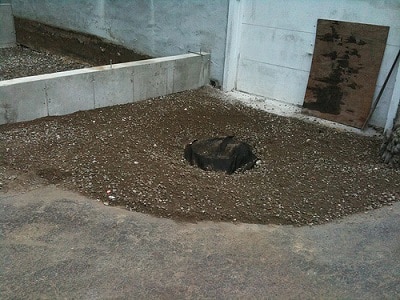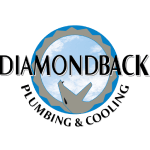A drywell is a small excavated pit filled with either gravel or stone that plays a vital role in temporary storage of rainwater until it eventually soaks into the ground soil. Its connection to a roof downspout is direct or indirect for effective collection of rainwater. Although it has many merits associated with rain garden, it barely involves landscaping or planting maintenance.
Many people prefer to install a drywell at home because the overall installation cost is affordable. Ideally, it is the one of the quickest and simplest ways to manage rainwater from the rooftop, allowing it to infiltrate through the soil. This in turn recharges the ground aquifer. In addition, it enhances water quality as it effectively reduces rainwater runoff and sewer overflow into the local streams and rivers.
Drywell challenges

Over the course of time, solid and scum, lint as well as soap in wastewater can easily clog openings in the well walls and pores in the surrounding soil. Continual build-up due to clogging makes it barely possible for water to drain and filter into the groundwater. More often than not, when this occurs it spells big problems for your home. With time, water backs up slowly and begins to pool on certain areas of your home such as the lawn. As a result, you are likely to get lawn fungus and molds, which increase your vulnerability to related infections. Besides, many disease-carrying mosquitoes find standing water -collected at the lawn- a suitable place for breeding. In the event the underlying problem resulting to well failure mainly involves sewage or wastewater, you will face serious biohazards as well as foul odor around your home.
Fixing drywell clog issues
The best solution to clogged drywells involves scrapping the walls thoroughly to get sufficient water outflow, which goes a long way to drain the basin dry. If your drywell can drain well enough, it makes it easy to do further cleaning. In some instances, you may have to pump the water out to get to the root of the problem. At your local stores, you can find a good pump that you can either rent or buy for use.
If you decide to walk around looking for professional services, you will find most service providers of drywell in Phoenix with some of the most effective pumps that can handle excessive water from clogging. Drywell installation and maintenance professionals can advise you on some of the easiest and less costly ways of installing or replacing a drywell pump at home. Before pumping out the water, you also need to figure out first where you are going to collect the debris-filled water.
Soil compaction is also one of the reasons why water may fail to drain out effectively in the drywell. To deal with dramatic reduction in the rate of water drainage because of soil compaction, you will have to call the experts to fix the problem at the very least. If you are willing to dig a new well, you may as well work without the aid pros. Nonetheless, you will have to close the well safely and dispose of any detrimental waste.
Drywell stone issues
Drainage stones are used in many drywells to partially fill them. In most cases, people do not understand the role of drainage stones in drywells and as such, their first impression about them often revolves around facilitation of the drainage process. Well, one of the primary reasons why drywells have stones inside is to prevent unexpected collapse of drywell walls. Adding stones into the drywell has an impact on its water retention capacity. Essentially, it lowers the water retention capacity of the drywell. Therefore, it is in your best interest to ensure that you have a contingency plan especially if you are aware your drywell drains slowly during heavy storms. Optionally, you may consider having bigger wells at home that effectively drain water during heavy storms.
Controlling storm water flow
You can also prevent too much storm water from finding its way into the drywell by applying a few tips on water flow control. Maintenance and repairing of the gutter systems as well as the downspout will go a long way to ensure water drainage in your home is effective. Good gutters and downspout direct water to external drainage systems and away from home reducing the amount of water that ends up collecting in the drywell.
For most complicated drywell issues, work with the experts, as they will be in a position to effectively solve the problem. Plumbing and drywell experts have the adequate knowledge with regard to perfect conditions for efficient drywells. They can tell you when to repair the drywell or when to have a new installation. Furthermore, they can make the entire process entirely rewarding by installing a durable and high efficient drywell at home at an affordable price.
